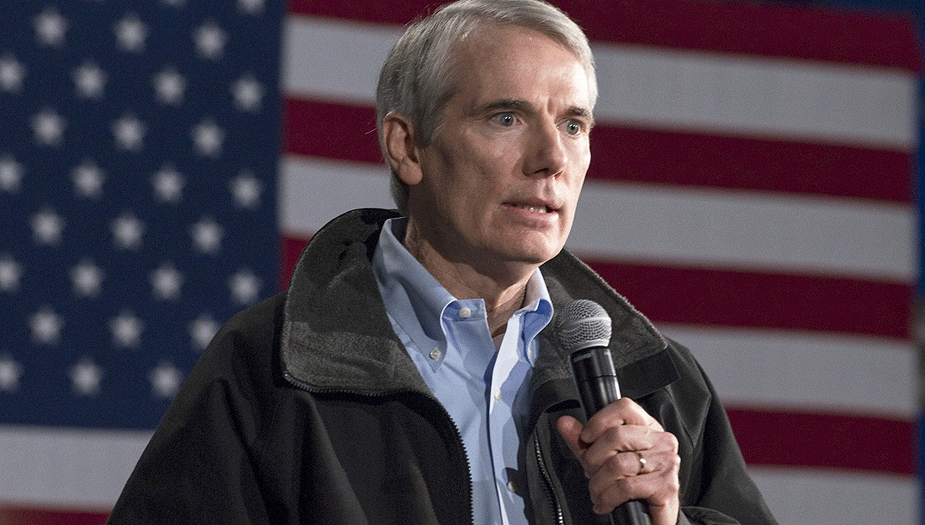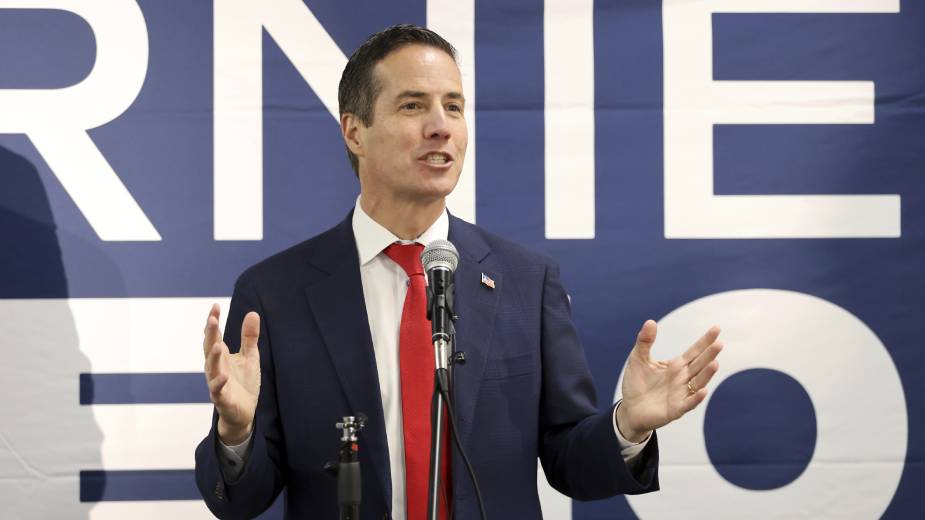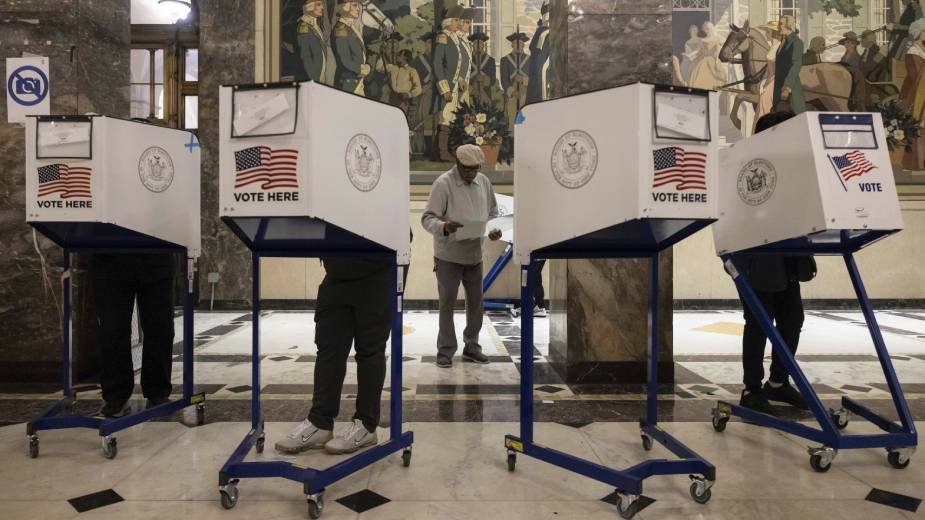Portman Co-Signs Earmark Funding Ban, Area Reps Weigh Merits
YOUNGSTOWN, Ohio – Federal funds should be allocated through a merit-based, competitive process rather than via congressional earmarks, U.S. Sen. Rob Portman said.
Portman is among a group of senators who introduced legislation Monday to enact a permanent ban on earmarks.
“Particularly at a time of record debt, it’s more important than ever to reduce unnecessary and wasteful spending, and members of Congress shouldn’t be able to get earmarks based on their seniority,” Portman, R-Ohio, said during a conference call with reporters. “It should go through a merit-based, competitive allocation process.”
The practice was eliminated a decade ago when Republicans became the majority party in the U.S. House of Representatives following the 2010 midterm election. Democrats, who now control both chambers of Congress, plan to resurrect it.
“Earmarks allow lobbyists and politicians to belly up to the pork barrel buffet in order to fund pet projects that are based on politics and favors instead of merit. Going back down this road will only fuel more overspending and further undermine the legislative process,” U.S. Sen. Pat Toomey, R-Pa., said in a news release announcing the earmark ban legislation.
“There is no question that the practice of earmarks was broken and corrupt prior to Republicans eliminating the practice in 2011,” U.S. Rep. Bill Johnson, R-6 Ohio, said in an email responding to a request for comment. “Although it was a Republican Party majority in the House that eliminated earmarks with my support, both parties were guilty of abusing the process.”
Portman said he could not recall whether he had ever utilized the earmarking process when was in the House from 1993 to 2005. While serving as director of the Office of Budget and Management during the administration of President George W. Bush, he instituted “total transparency” on earmarks.
“It didn’t make me very popular with Capitol Hill, but it actually reduced the amount because they had grown substantially,” he said. “I’m worried that they’ll grow substantially again if we put them back in place.”
Earmarks historically constituted an “infinitesimal portion” of the federal budget, said Barb Ewing, CEO of the Youngstown Business Incubator. Prior to joining the incubator’s staff, she served as director of economic development in the office of U.S. Rep. Tim Ryan, D-13 Ohio.
“There’s just not a universe of federal funding that is open to every possible configuration of projects,” Ewing said. Earmarks provide representatives and senators, who should understand their communities and states, to provide funding for their priorities. Also, smaller nonprofit agencies that have never submitted a federal grant before are unlikely to be successful in a competitive process.
Notable local projects and organizations that benefited from earmarks during Ewing’s time at Ryan’s office included the Warren Community Amphitheatre, Brite Energy Innovators, Youngstown State University and YBI, which received funds to build out the downtown building that eventually housed America Makes.
Prior to Ryan’s election, the two downtown Youngstown federal courthouses, the state Route 711 Connector and what today is known as the Covelli Centre also received funds through federal earmarks, she said.
U.S. Sen. Sherrod Brown, D-Ohio, supports the return of earmarks, so long as the process is transparent and projects represent a good use of taxpayer money, according to a statement from his office. They help secure funding for Ohio priorities in legislative packages and increase the likelihood of their passage.
In 2009, Brown helped secure $2 million for barracks at James A. Garfield Joint Military Training Center and $900,000 for military construction at the Youngstown Air Reserve Station.
Portman questioned earmarks’ value in the passage of appropriations bills.
“When you look at it objectively, we have never had any trouble passing a big omnibus appropriations bill at the end,” he said. “Our problem is we’re not doing individual bills, which we should, but that’s not because of the lack of earmarks.”
Whether earmarks are brought back or not, Johnson said he would continue to fight to secure the resources needed for the region, which is “always at the back of everyone’s minds” in both the federal and state capitals. Earmarks previously were “a carrot used by leadership to buy votes” a practice he said was wrong.
“But let’s be honest: eliminating earmarks hasn’t made the federal government any smaller or more effective,” he continued. “Ultimately, what we actually need is for Congress to reclaim its Article 1 authority to control America’s purse strings and get back to the regular order of responsible budgeting and congressionally-targeted spending. It’s necessary if we are ever going to address our national debt and deficit crisis.”
Ewing said every member of Congress has the opportunity to try to gain seniority and to work with members of the Appropriations Committees in each chamber to secure funding. The earmarking process also provides the potential for the kinds of relationships that offer more than a “winner take all” situation.
“There truly is an opportunity for collaboration and bipartisanship,” she said.
Copyright 2024 The Business Journal, Youngstown, Ohio.



